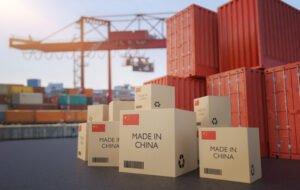Table of Contents
ToggleIntroduction
In the contemporary global business landscape, China’s prominence as a manufacturing powerhouse is indisputable. Whether it is electronics, apparel, or heavy machinery, China’s expansive manufacturing capabilities have been a lure for businesses worldwide. However, before signing a manufacturing agreement in China, it is paramount that companies ensure their potential manufacturing partner complies with all applicable laws, regulations, and industry standards.
This article aims to provide a guide on the key factors to verify before entering into a manufacturing agreement with a Chinese factory. These include validating the business license, certificates, and permits of the Chinese factory and conducting a thorough due diligence investigation.
Verifying Legal Compliance
Foremost on the checklist should be the verification of the Chinese factory’s business license. This is a legal requirement for any business operating in China, and its absence is a glaring red flag. It contains crucial information such as the company’s registered capital, business scope, business registration, and official company name in Chinese. It is the Chinese name of the entity that has legal value in China and not the English name.
A factory’s certifications and permits are also important indicators of its compliance with local regulations and industry standards. For example, a manufacturing enterprise may need certifications such as the ISO (International Organization for Standardization) or the CCC (China Compulsory Certificate). These certifications demonstrate the factory’s adherence to international or national quality standards, respectively.
Keep in mind that these documents should not just be requested, but their authenticity should also be confirmed with the respective issuing bodies.
Due Diligence Investigations
After verifying the factory’s legal compliance, it’s important to delve deeper. This is where due diligence investigations come in. They involve a detailed examination of the factory’s background, capabilities, reputation, financial standing, and more.
During a due diligence investigation, you may want to check the factory’s historical records, including any past legal disputes or complaints. Similarly, understanding their financial health can give you insights into their stability and reliability as a business partner.
It’s also essential to assess the factory’s technical capabilities and capacities. This includes evaluating their machinery, production processes, and quality control measures. Visiting the factory in person or hiring a trusted third party for an on-site audit can provide valuable insights in this regard.
Finally, due diligence should also encompass an appraisal of the factory’s labor practices. Ensuring that the factory is not involved in labor law violations, such as child labor or unfair working conditions, is not just a legal necessity but a moral one as well. It helps protect your brand image and prevents potential reputational damage.
Ensuring Long-Term Contract Fulfillment
A manufacturing agreement is not a short-term arrangement. It is an enduring relationship that can span multiple years. Therefore, ensuring that the Chinese factory has the capability to fulfill the contract over a long period is essential.
This requires an assessment of the factory’s scalability, flexibility, and risk management capabilities. For instance, does the factory have the ability to scale up production if your demand increases? Do they have contingency plans in place to deal with potential disruptions such as supply chain issues or natural disasters? These factors can significantly impact the factory’s ability to meet the terms of your manufacturing agreement consistently.
Arbitration and Governing Law Clauses: Ensuring Legal Enforceability
In addition to verifying compliance and conducting due diligence, a critical aspect of a manufacturing agreement is its legal enforceability, particularly in a jurisdiction that is often viewed as complex and challenging – China. When creating a manufacturing agreement, it is important to consider and incorporate dispute resolution mechanisms that are recognized and enforceable under Chinese law, with arbitration being a preferred method.
Why is arbitration favored in this context? Unlike litigation, arbitration is typically more efficient, confidential, and flexible. Furthermore, arbitration allows for disputes to be resolved by experts in the field, leading to more informed decision-making. The arbitration and governing law clause should be carefully drafted in the manufacturing agreement. This clause should stipulate that any disputes arising from or related to the agreement should be governed by the laws of the People’s Republic of China, ensuring that Chinese law will apply to the interpretation and implementation of the agreement.
The clause could further specify that disputes shall be submitted to a respected and recognized arbitration institution in China, such as the Shanghai International Arbitration Center, for arbitration. This provides a clear path to dispute resolution, bypassing potential jurisdictional issues that could arise if a dispute were to be taken to court.
By stating clearly that the laws of the People’s Republic of China govern the agreement and that disputes shall be resolved by arbitration in Shanghai, the potential favored arbitration award could be enforced more easily. It also provides both parties with a degree of certainty regarding the resolution process should a dispute arise.
Ensuring that your manufacturing agreement is legally enforceable in China is a critical step in safeguarding your interests. By incorporating well-drafted arbitration and governing law clauses, you can facilitate smoother dispute resolution and reinforce the enforceability of your agreement under Chinese law.
Conclusion
Ensuring the compliance and capability of a Chinese factory before signing a manufacturing agreement is a complex, multifaceted process. It necessitates legal verification, detailed due diligence, and long-term feasibility assessments. Though time-consuming and labor-intensive, these steps are critical in choosing the right manufacturing partner, mitigating risks, and paving the way for a successful business relationship.
Contact us if you need legal help in China, like drafting contracts that follow Chinese law, background investigation of Chinese companies, protecting patents and trademarks in China and internationally, and verification of contracts to the law in China, etc.
If you require our assistance or have further questions about our services, please do not hesitate to contact our Customer Relationship Manager, Jan Erik Christensen, at janerik@ncbhub.com. We look forward to hearing from you and helping your business succeed in China.








